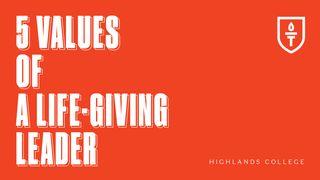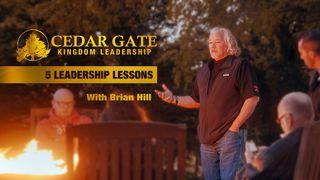Movement–Lead Where You Areනියැදිය

Lead Where You Are–from Your Confidence in the Power of God’s Word
A great source of encouragement to pastors and church leaders is found in two New Testament letters in particular, 1 and 2 Timothy. What was Paul’s primary focus in his directives to the young pastor of the church at Ephesus, Timothy? Arguably, it is the paramount charge of teaching and preaching the Word of God. Over 30 times in these short letters, Paul uses the words preach, teaching, train, Scripture, and Word of God. Clearly Paul is using affirmations and directives not only to guide this emerging leader, but to build his confidence in the Word of God.
If you could sit across from Paul at a table and have him instruct you in the art of gaining confidence in the Word of God, here are a few things he would likely say with urgency:
“Grow in it personally!”—Our confidence in God’s Word as followers (and as leaders) comes from consistent exposure to it. Clearly, Timothy was taught the Scripture “since childhood” (v. 15a). His home was full of God’s Word. It is difficult to imagine a more important goal to have as a pastor than filling your life, your home, and your church with the Bible, and training your congregation to do the same.
“Understand it deeply!”—Our confidence in God’s Word increases as we recognize its authority. Paul is absolutely clear that the Scripture is thoroughly authoritative. “Everything in the Scriptures is God’s Word” (v. 16). He wanted the leader tending to the congregation he had planted in the influential city of Ephesus to have a clear respect for the authority of Scripture. In your congregation, the church should be as certain of the Word of God as is their leader.
“Communicate it bodly!”—Our confidence in God’s Word is strengthened when we find its power at work in our lives. It isn’t the words we read but the directives that we hear, obey, and relay that prove so potent. For Paul, ministry flowed out of God’s Word. And ministry was simply doing what God says we are to do. At one point Paul says clearly to Timothy: “Preach God’s message” (2 Timothy 4:2).
“Watch it work in people’s lives!”—Our confidence in God’s Word is enhanced every time we observe the work it accomplishes. Paul said: “The Scriptures train God’s servants to do all kinds of good deeds” (v. 17). Paul spoke from experience, of course. Paul’s preaching was more than notes on papyrus; it came alive in a developing young leader.
Paul says ministers do not just read Scripture but use it to affect the lives of people (v. 16). The Bible is not informational; it is transformational: it is a tool God uses to change lives. Within the pages of Scripture the Word of God is described as a sword, a hammer, a lamp, a light, a seed, and a fire. It is so powerful it pierces, pounds, brightens, directs, grows, and burns within our souls. The Bible is forceful.
Thought of the Day
Scripture engagement brings powerful life change to leaders, congregations, and communities.
Reflect
Do you read and study the Bible alone, or in community with others? Who is your “Paul”? Who is investing into your life and faith? Who is your “Timothy”? Into whose life are you intentionally investing yourself?
Pray
Dear Lord, you are my rock and salvation. You, O Lord, are my confidence. Help me to lean fully upon you and the power of your Word. Open my eyes to see the incomparable power available to me and the people of God through your Spirit and your Word.
Respond
Read through 1 and 2 Timothy and make a list of all of the leadership advice that Paul gave to Timothy.
ලියවිල්ල
මෙම සැලැස්ම පිළිබඳ තොරතුරු

While the life of a leader can be incredibly rewarding, it can also be the most exhausting job on earth. As you bring hope and restoration to others, there will be times when you’ll find yourself challenged to maintain your own spiritual reservoir. If you feel you have squeezed the Bible dry in your preaching and teaching, go back to the streams of living water and fill up again.
More
අදාළ/සමාන සැලසුම්

Relentless

10 Days to Better Spiritual Leadership

Leadership Wisdom for Executives

Follow Me: Timeless Leadership Lessons

5 Values Of A Life-giving Leader

Inspired Leadership

6 Ways to Strengthen Your Servant Leadership

The Impact and Attitude of a Faith Driven Investor

Called To Influence
